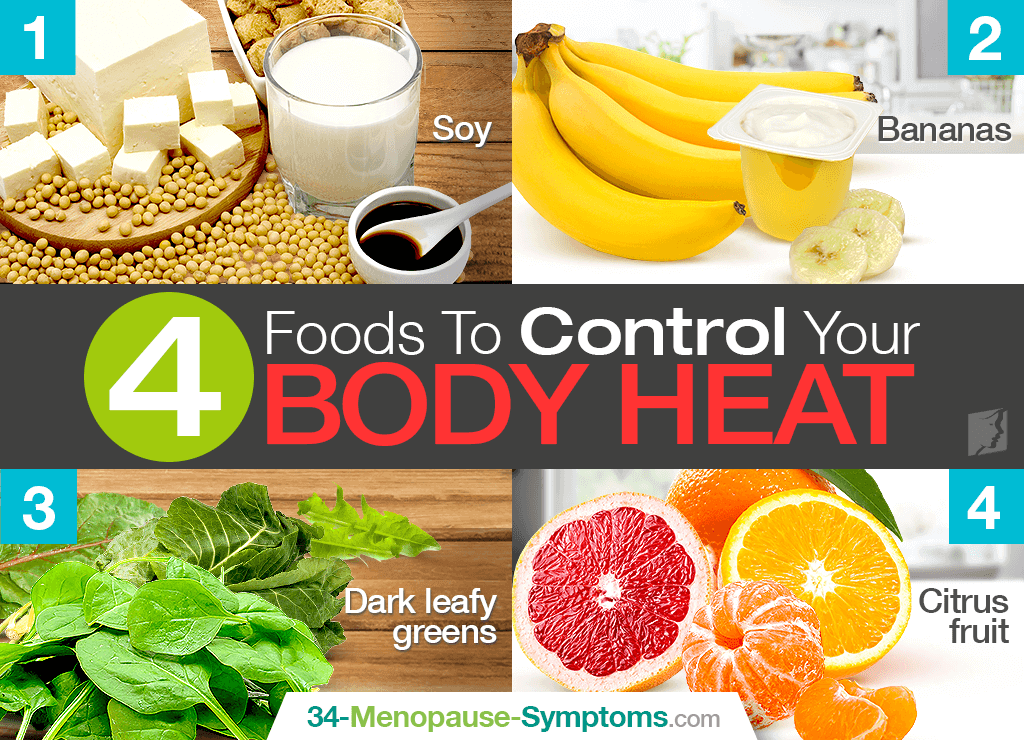Hot flashes are extremely common during menopause. When your sex hormone levels experience a sharp fluctuation, your hypothalamus - the brain region in charge of body temperature - is thrown off balance and mistakenly registers and abrupt surge in temperature. As an “emergency response” to cool you down, your breathing becomes shallower, your cheeks flush, and you begin to sweat.
While these episodes may seem daunting, there are some dietary changes you can try in order to control them. When you know what foods to eat - and why - it makes you more able to defend yourself against the flames.
Soy
This bean, part of the legume family, is one of the most popular ways to relieve hot flashes. Soy contains high levels of phytoestrogenic compounds, namely genistein and daidzein, which are compatible with the body's own estrogen receptors. They can therefore replace the missing estrogen, helping regulate estrogenic function and keeping the hypothalamus in check.
On top of it all, soy is an excellent source of plant protein. Enjoy this healthy solution as tofu, tempeh, miso, or edamame. These products are widely available in food markets and have the same versatility as animal protein.
Bananas
These sweet, easy-to-eat fruits are a wonderful alternative to processed sugars and desserts. They contain a nearly-perfect balance of the three types of sugar - fructose, sucrose, and glucose - required to receive a steady stream of energy, without spiking your body temperature. They also have high levels of potassium, a lack of which can increase blood pressure; this will help you avoid tachycardia and panic related symptoms. Enjoy bananas straight out of the peel, cut up and mix with whole grain cereal, or blend with yogurt and enjoy the cooling effect.
Citrus Fruit
Citrus fruits - especially oranges, grapefruit, clementines, and tangerines - are known to decrease the frequency, severity, and duration of hot flashes. They contain high levels of vitamin C, which is indispensable for keeping collagen production. During a delicate time such as menopause, good collagen levels will help you keep all your connective tissues working at their best. As an added bonus, vitamin C can help increase immune system activity.
Dark Leafy Greens
Spinach, dandelion greens, mustard greens, Swiss chard, and rapini (broccoli rabe) are all fantastic for fighting against hot flashes. This gives you a lot of flexibility when it comes to choosing which you want to add to your dinner each night.
The benefits provided by leafy greens are largely due to their high content of vitamin K, E, and magnesium. Adequate vitamin E intake has been linked to milder symptoms of hormonal imbalance, such as breast tenderness.
This list makes it very easy for you to incorporate hot flash-friendly foods into your day. Simply start your day off with a fruit smoothie, follow it up with a nice big salad with dark leafy greens, and finish off the night with a delicious and savory tofu stir fry. There is no reason why you should suffer with heat - all you have to do is simply enjoy these whole foods each and every day. Click on the following link to find a 5-day plan to avoid hot flashes and get you started with new healthy habits.
Sources
- Medical Center. (2011). Magnesium. Retrieved June 16, 2014, from http://umm.edu/health/medical/altmed/supplement/magnesium
- NYU Langone Medical Center. (2014). Phytoestrogens. Retrieved June 16, 2014, from http://www.med.nyu.edu/content?ChunkIID=108298
- NYU Langone Medical Center. (2013). Soy. Retrieved June 16, 2014, from http://www.med.nyu.edu/content?ChunkIID=21767
- Office on Women's Health. (2010). Menopause. Retrieved June 16, 2014, from https://www.womenshealth.gov/menopause/University of Maryland
- University of Maryland Medical Center. (2013). Potassium. Retrieved June 16, 2014, from http://umm.edu/health/medical/altmed/supplement/potassium




